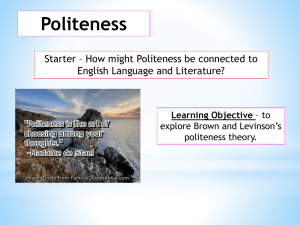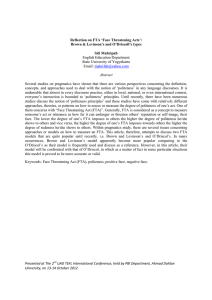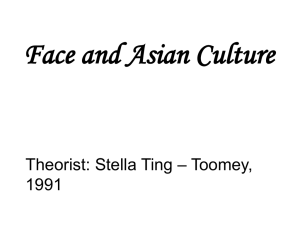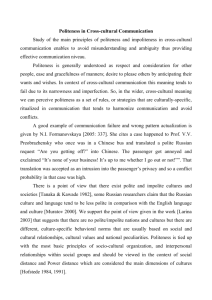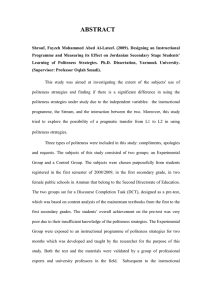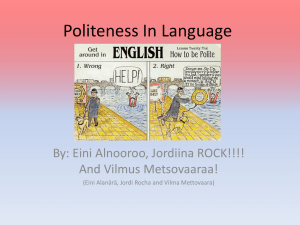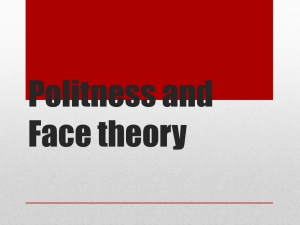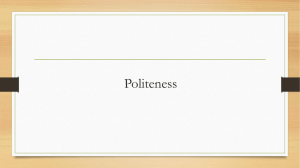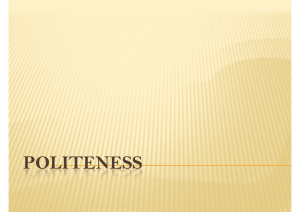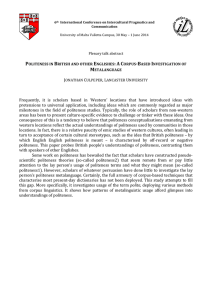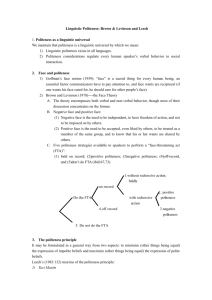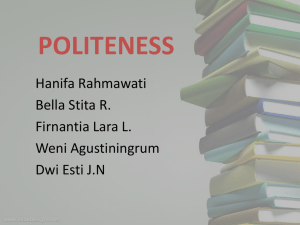Online collaboration skills in business education: a
advertisement
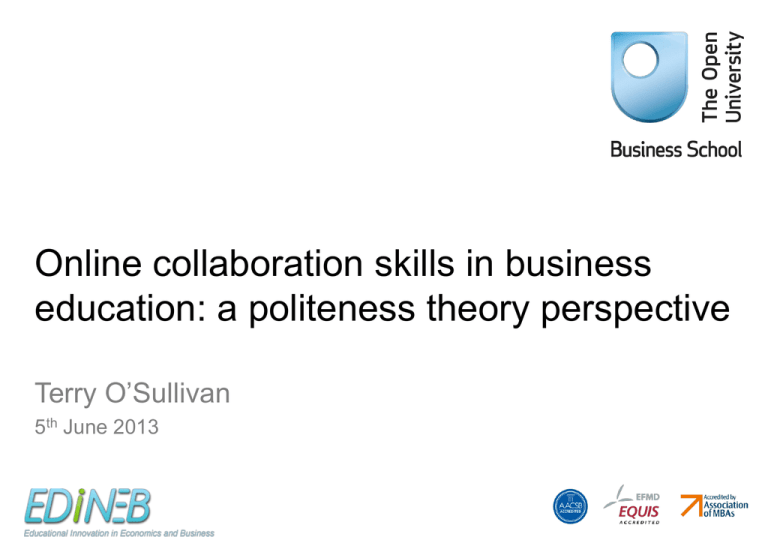
Online collaboration skills in business education: a politeness theory perspective Terry O’Sullivan 5th June 2013 Overview • Online collaboration as a ‘future skill’ • Politeness theory (Brown and Levinson, 1987) as a framework for understanding online collaboration skills • Case study of an online collaborative learning activity • Pointers to how we understand skills development and relevance ‘Future skills’ • Sense-Making • Social Intelligence • Novel and Adaptive Thinking • Cross-Cultural Competency • Computational Thinking • • • • New Media Literacy Transdisciplinarity Design Mindset Cognitive Load Management • Virtual Collaboration (Davies, Fidler, et al., 2011) Skills: tools or responses? Skills: development or emergence? Politeness theory • Language: content and relationship function – Technical emphasis on content function (e.g. Grice, 1967: quantity, quality, relevance and manner) • Relationship function directed at maintaining ‘face’: ‘an image of self delineated in terms of approved social attributes’ (Goffman, 1967) • Positive and negative face (Brown and Levinson, 1987) Lesser estimated risk of face loss 1. ‘Baldly on record’ – ie without redressive action On record With redressive action Do the FTA 2. Positive politeness 3. Negative politeness 4. Off record 5. Don’t do the FTA Greater estimated risk of face loss Fig. 1: Five strategies with regard to face-threatening actions (FTA). Adapted from Brown and Levinson (1987), p. 60 Web 2.0 and face • • • • • Silence: lurking Off record: indirectness or back channel Negative politeness: concern for consensus Positive politeness: self-presentation, including non-verbal Baldly on record: from directness to flaming Online collaborative learning activity • • • • • Formatively-assessed group work Case study analysis and report writing and editing Moodle forum and wiki Negative face work in leading and managing task Positive face work in establishing identity as collaborator Pointers to skills development • Adapting real-world and prior skills to online context • Facilitating emergence rather than skills transfer • Supporting soft ‘relationship’ skills as much as, if not more than, hard ‘technical’ skills • Acknowledging risk to face as a source of learning rather than an obstacle to learning ‘Future skills’ • Sense-Making • Social Intelligence • Novel and Adaptive Thinking • Cross-Cultural Competency • Computational Thinking • • • • New Media Literacy Transdisciplinarity Design Mindset Cognitive Load Management • Virtual Collaboration (Davies, Fidler, et al., 2011) Faculty of Business and Law The Open University Walton Hall Milton Keynes MK7 6AA www.open.ac.uk
